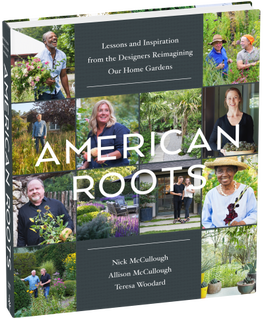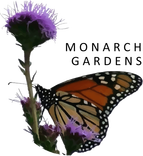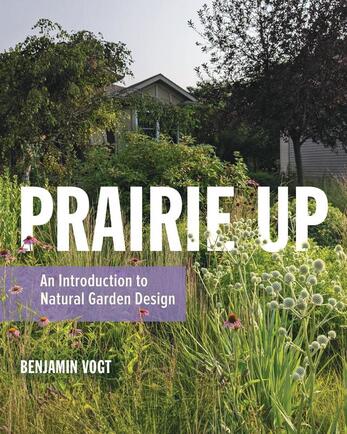
Prairie Up
An Introduction to Natural Garden Design [now in its 6th printing with 11,500 copies sold in the first year] 2024 American Horticultural Society Book Award (honorable mention) January 2023 order now from 3 Fields Books / Univ of Illinois Press Amazon Indiebound Landscaping with native plants has encouraged gardeners from the Midwest and beyond to embark on a profound scientific, ecological, and emotional partnership with nature. Benjamin Vogt shares his expertise with prairie plants in a richly photographed guide aimed at gardeners and homeowners, making big ideas about design approachable and actionable. Step-by-step blueprints point readers to plant communities that not only support wildlife and please the eye but that rethink traditional planting and maintenance. Additionally, Vogt provides insider information on plant sourcing, garden tools, and working with city ordinances. This book will be an invaluable reference in sustainable garden design for those wanting both beautiful and functional landscapes. Easy to use and illustrated with over 150 color photos, Prairie Up is a practical guide to artfully reviving diversity and wildness in our communities. Listen to Benjamin on the podcasts A Way to Garden and In Defense of Plants. Prairie Up (signed copy)Signed & dated copy of Prairie Up. Price includes USPS ground advantage shipping within the continental US (2-7 days). Books shipped within 2 business days of order. For faster shipping, or shipping outside the US, please contact us or order from a local bookstore.
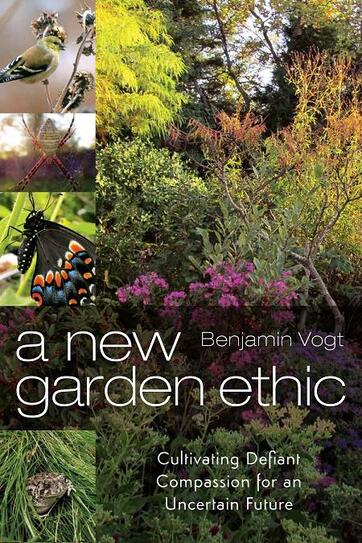
A New Garden Ethic
Cultivating Defiant Compassion for an Uncertain Future [now in its 4th printing] September 2017 Order now from: New Society Publishers Amazon Our landscapes push aside wildlife and in turn diminish our genetically-programmed love for wildness. How can we get ourselves back into balance through gardens, to speak life's language and learn from other species? Vogt addresses why we need a new garden ethic, and why we urgently need wildness in our daily lives. He examines the psychological issues around climate change and mass extinction as a way to understand how we are short circuiting our response to global crises, especially by not growing native plants in our gardens. Simply put, environmentalism is not political, it's an ethical rewiring of our animal brains -- and social justice for all marginalized species facing extinction. By thinking deeply and honestly about our built landscapes, we can create a compassionate activism that connects us more profoundly to nature and to one another. Listen to Benjamin on Cultivating Place and The Joe Gardener Show See the presentation based on the book A New Garden Ethic (Signed Copy)Signed & dated copy of A New Garden Ethic. Price includes USPS ground advantage shipping within the continental US (2-7 days). Books shipped within 2 business days of order. For faster shipping, or shipping outside the US, please contact us or order from a local bookstore. praise for A New Garden Ethic
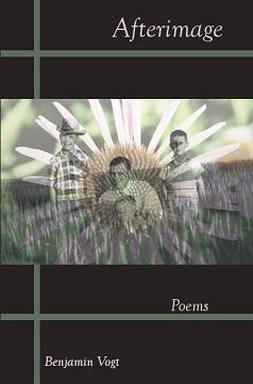
Afterimage: Poems
Using family photographs from the last century, Afterimage moves from the southern to northern Plains and the eastern Midwest, where the natural world calls out through open fields and dark woods, then through transient moments framed by gardens: a butterfly nectaring on a coneflower, planting lavender with his future wife, or autumn leaves crashing against a morning window. In a rich array of forms and evocative imagery, the poems in Afterimage reach through prairie history until grass becomes skin, and light becomes shadow. "Afterimage is an unsentimental but heartfelt elegy for the landscape and the people of the twentieth-century Midwest. The poems preserve the lost place, the lost time, and lost inhabitants, but Benjamin Vogt also celebrates the earth's own ability to flower and return, with human assistance and without. These firm and carefully measured poems are a thoughtful delight, one that should not be missed." -- Andrew Hudgins "Benjamin Vogt's rich, transporting gift is to see deeply, generously considering moments and scenes that preceded and sustain the lives we know, to dig curiously and calmly, alert for clues and remnants--to harvest more than any seed promised. " -- Naomi Shihab Nye Afterimage (signed copy)Signed & dated copy of Afterimage. Price includes USPS ground advantage shipping within the continental US (2-7 days). Books shipped within 2 business days of order. For faster shipping, or shipping outside the US, please contact us or order from a local bookstore. Book Contributions -- Gardening
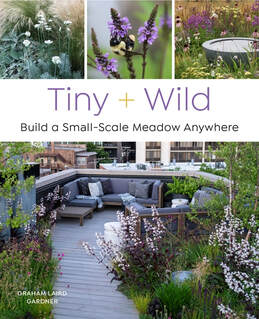
The perks of creating a wild planting, even on a small scale, are many. Tiny but mighty meadows help mitigate climate change, foster biodiversity, sequester carbon, and calm the senses. With as little as a few square feet of space, you can create a beautiful, naturalistic planting that supports a diversity of plants, pollinators, and a plethora of other living things, not to mention its visual appeal to human eyes. Author and landscape designer Graham Laird Gardner helps you find inspiration in natural spaces so you can successfully site, design, plant, and care for your own small-scale meadow.
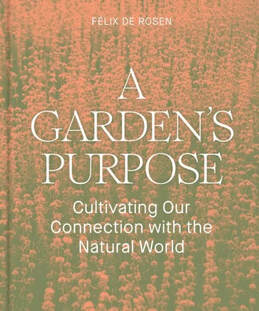
Essays and stories to inspire us to nurture diverse, meaningful relationships with gardens and landscapes.
Each chapter in this book is dedicated to a specific idea or element of the garden, from places where gardens grow (i.e., a driveway in San Francisco, a bathtub as a planter) to garden management (why some lawns need watering every few days, and some gardens can go almost a full year without irrigation) to color and texture (i.e., how fine-textured plants like grasses can be used to unify a space), and everything in between. Hundreds of gardens from all corners of the globe are included, photographed in glorious full color. Perfect for home gardeners, landscape designers, or as a gift for the gardener in your life, this is an ode to the wonder, design, and habitat of gardens, and an inspiration to nurture meaningful relationships with the natural world around us. 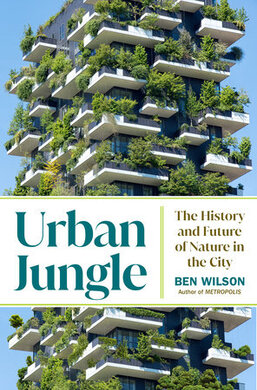
In this exhilarating look at cities, past and future, Ben Wilson proposes that, in our world of rising seas and threatening weather, the natural world may prove the city’s savior. Since the beginning of civilization, humans have built cities to wall nature out, then glorified it in beloved but quite artificial parks. In Urban Jungle Wilson looks to the fraught relationship between nature and the city for clues to how the planet can survive in an age of climate crisis. Urban Jungle offers the pleasures of history—how backyard gardens spread exotic species all over the world, how war produces biodiversity—alongside a fantastic vision of the lush green cities of our future. Climate change, Wilson believes, is only the latest chapter in the dramatic human story of nature and the city. 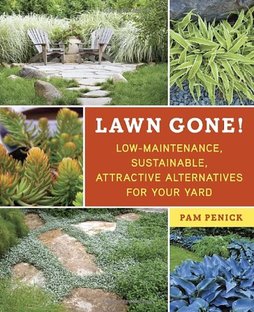
Homeowners spend billions of hours—and dollars—watering, mowing, and maintaining their lawns. You don’t have to be one of them. Free yourself with Lawn Gone!, a colorful, accessible guide to the basics of replacing a traditional lawn with a wide variety of easy-care, no-mow, low-water, money-saving options.
Northern Plains plant recommendations 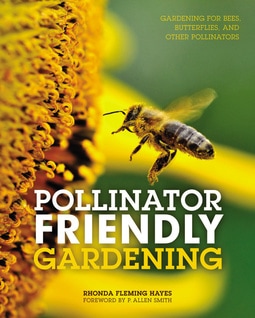
Pollinator Friendly Gardening identifies the most visible and beloved pollinators: bees, butterflies, and hummingbirds, as well as some more unlikely candidates such as ants, wasps, and beetles. It then explains the intriguing synergy between plants and pollinators. This vital information makes it a unique sourcebook to share the ways that anyone can make a yard a more friendly place for pollinators.
Plant selection, hardscape choices, habitat building (both natural and manmade), and growing practices that give pollinators their best chance in the garden are all covered in detail. Plant lists organized by category, helpful tips, and expert spotlights make it a fun and easy book to read, too. 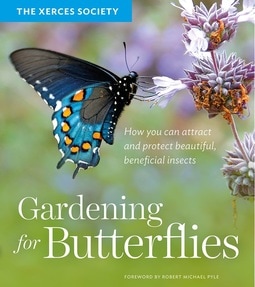
This optimistic call to arms is packed with everything you need to create a beautiful, beneficial, butterfly-filled garden. Gardeners will learn why butterflies matter, why they are in danger, and what simple steps we can take to make a difference. You'll learn how to choose the right plants, how to design a butterfly-friendly garden, and how to create a garden that flutters and flourishes with life.
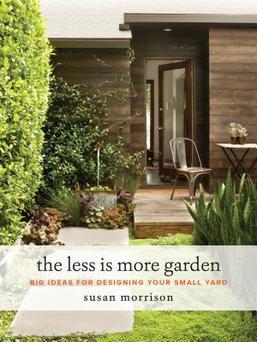
The Less Is More Garden shows you how to take advantage of a small yard. Designer Susan Morrison offers dozens of savvy tips on how to personalize a space to match a specific lifestyle, draws on her years of experience to recommend smart plants that will provide seasonal interest, and suggests hardscape materials that match many different aesthetics. Throughout, tips are supplemented by inspiring photographs that show a variety of successful designs from around the country.
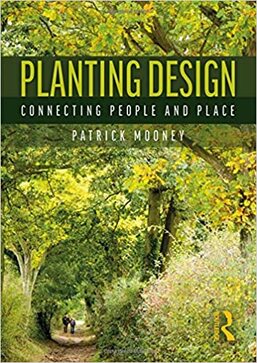
This book meshes the art of planting design with an understanding of how humans respond to natural environments. Beginning with an understanding of human needs, preferences and responses to landscape, the author interprets the ways in which an understanding of the human-environment interaction can inform planting design. Many of the principles and techniques that may be used in planting design are beautifully illustrated in full colour with examples by leading landscape architects and designers from the United Kingdom, Europe, North America and Asia.
Book Contributions -- Essays and Poetry
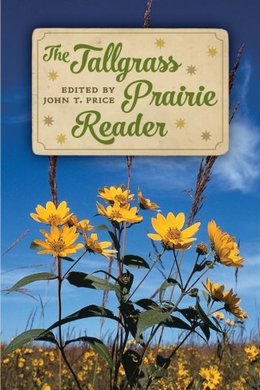
The tallgrass prairie of the early 1800s, a beautiful and seemingly endless landscape of wildflowers and grasses, is now a tiny remnant of its former expanse. As a literary landscape, with much of the American environmental imagination focused on a mainstream notion of more spectacular examples of wild beauty, tallgrass is even more neglected. Prairie author and advocate John T. Price wondered what it would take to restore tallgrass prairie to its rightful place at the center of our collective identity.
Focusing on autobiographical nonfiction in a wide variety of forms, voices, and approaches—including adventure narrative, spiritual reflection, childhood memoir, Native American perspectives, literary natural history, humor, travel writing and reportage—he honors the ecological diversity of tallgrass itself and provides a range of models for nature writers and students. 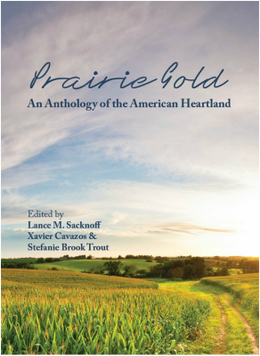
The American Midwest provides the ideal landscape for literature exploring the intricate evolution of American ideology and culture from the earliest frontiersmen and settlers to present day citizens. In celebration of this region's inherent importance to American identity, Prairie Gold: An Anthology of the American Heartland presents a myriad of Midwestern-focused literature in three sections of literary styles: fiction, nonfiction, and poetry. Each writer investigates, challenges, and redefines the varied perceptions of the Midwest, and, most importantly, their literary art invites us to gaze with renewed appreciation on the environmental beauty, nourishing agriculture, and innovative and creative people of the American Heartland.
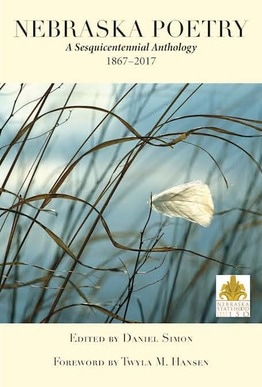
The first anthology of its scope, Nebraska Poetry encompasses 150 years of the state’s literary history, featuring 80-plus poets and more than 180 poems. This landmark collection includes poems by authors best known for their prose—like Willa Cather, Loren Eiseley, and Tillie Olsen—as well as some remarkable but relatively forgotten writers from the late nineteenth to the mid-twentieth centuries. Among the contemporary writers, it includes poets of Nebraska’s renowned “second renaissance” along with a rich array of younger writers who are redefining what poetry from and about the state might represent. A broadly inclusive as well as diverse anthology, Nebraska Poetry celebrates the state’s brilliant contribution not only to Great Plains literature but to the broader traditions of American letters.
Manuscripts in Progress
Turkey Red : Memoirs of Oklahoma Where the wind comes sweeping down the plain lies a microcosm of western progress. For one author, both hating and loving this place means embracing who he is, and how his life is a reconciliation for past and current transgressions. From prairie to Mennonite homesteaders, forced migration of Native Americans to oil booms and outlaw gangs, Turkey Red explores the complex social and ecological history of the great American experiment through one family's history. |
Books |
|
Monarch Gardens is a prairie-inspired design firm. We specialize in lawn to meadow conversions as well as urban shade gardens.
Employing 95% native plants, our designs are climate resilient, adaptable, and provide numerous ecological benefits while artistically reflecting wilder landscapes. |
Sign up for our newsletter!
|

